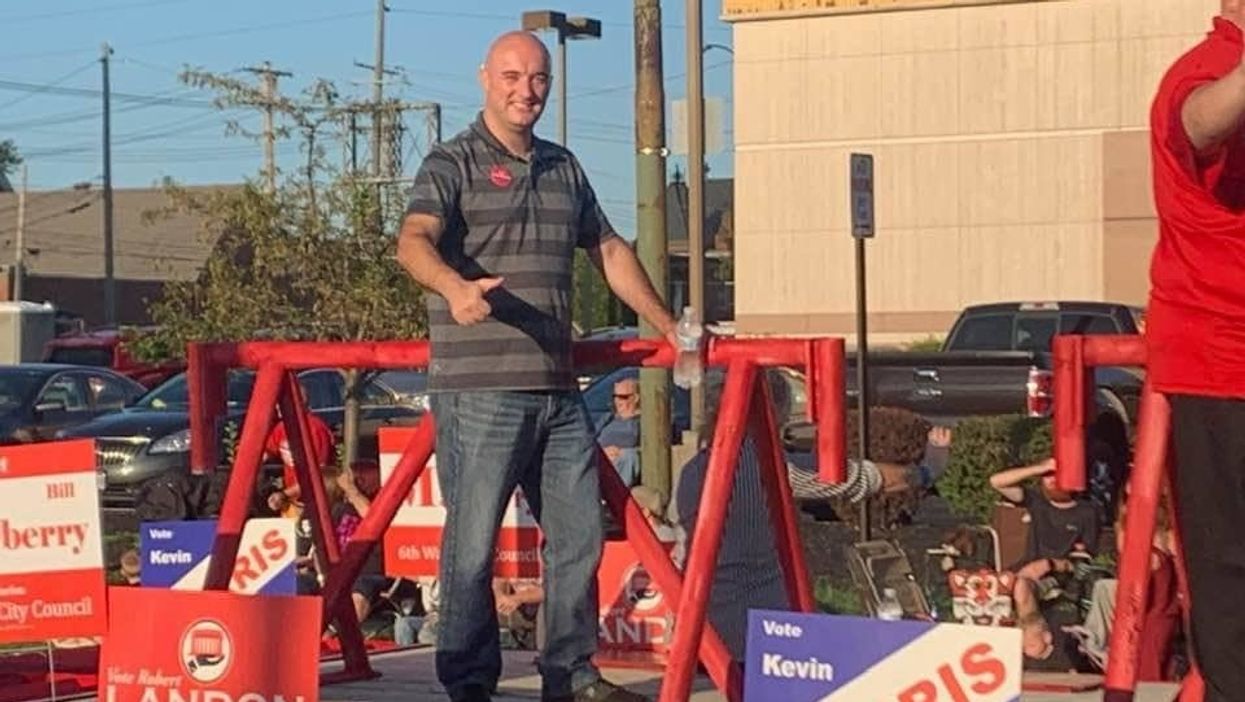Two Republicans have been charged with distributing phony sample ballots in an Ohio city. The purported small-town crimes are misdemeanors but still stand as the most prominent allegations of election fraud so far in this off-year election.
GOP officials lambasted the timing of the charges as despicable. But the top prosecutor in the case says the law was clearly violated.
The incident is also a reminder that — while President Trump has made repeated, emphatic and unsubstantiated allegations about widespread voter fraud by the Democrats in 2016 and other contests — election malfeasance is a bipartisan problem and the biggest instance of election tampering in the 2018 midterm was perpetrated by Republicans, prompting the do-over of a North Carolina congressional race.
"For all the lies we've heard from @realDonaldTrump about voter fraud - he has yet to say a word about Republican-voter fraud in OH or in NC," Kurt Bardella, a prominent GOP operative and former congressional aide who recently quit the party, said on Twitter.
One of the men charged in Ohio on Election Day is 29-year-old Robert Landon, who went on to garner 53 percent in the contest for auditor of Marion, a city of 37,000 north of Columbus. The other is John Matthews, 53, a former county GOP chairman with a tainted past. The person whose complaint instigated the investigation was Democrat Kelly Carr, the incumbent who came up short in her bid for re-election.
State law says political parties and candidates may not distribute sample ballots and may not send any communication that purports to be from an elections board. Local prosecutor Mark Russell says a police report alleges Landon admitted to handing out campaign materials designed to look like sample ballots, with GOP candidates' names in all the local elections circled in black. The document was labeled as "produced by the Marion County Board of Elections web site" and also "Paid by the Marion Co. Republican Party."
Under Ohio law, the charges the two men face come with a penalty of six months in jail and a $1,000 fine.
Politics in Marion is a relatively modest enterprise. Landon had recently reported spending $6,026 from his campaign for T-shirts, a campaign website, car magnets and other campaign advertising, including mailers, flyers, Facebook ads and handouts.
This was not the first time Matthews' political activities have put him crosswise with the law. He was forced out after a dozen years as county Republican boss two years ago after he was sentenced to a year's probation and fined $4,000 for admitting to an election-related felony — placing 500 calls and sending 1,200 text messages on behalf of John Kasich, then the governor and a presidential candidate, while working at the Ohio Industrial Commission, a state agency.




















